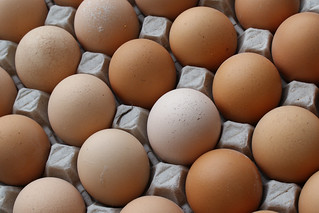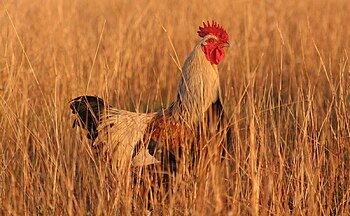New International
Egg Foundation launched to help combat malnutrition in developing countries. A new charitable foundation, the International Egg
Foundation (IEF) has been launched by the International Egg Commission during
its IEC Business Conference Vienna 2014.
This new global foundation will help provide people living in developing
countries with greater access to eggs as part of its goal to combat
malnutrition and provide people who are underfed and undernourished with access
to a sustainable diet.
Figures produced by the United Nations’ Food and
Agriculture Organization (FAO) show that 870 million people suffer from
chronic hunger. Among children, it
is estimated that 171 million under five years of age are chronically
malnourished.
 |
| Eggs (Photo credit: pietroizzo) |
Bart
Jan Krouwel, Chairman of the International Egg Foundation, explained: “A lack of access to high quality
protein is a major problem for many people living in developing countries. As FAO figures show, malnutrition is a major
issue globally; millions of people are suffering. Eggs are an excellent
source of high quality protein, they contain all the essential vitamins and
minerals required for a healthy diet.
Eggs also have two key advantages when it comes to helping to
improve diets in developing countries, they are one of the most accessible
forms of high quality protein, and they have a low carbon footprint, making
them a truly sustainable option.”
The IEF will work with leading charitable organisations,
universities, and leading egg businesses around the world to provide financial
support and technical advice to increase egg production in developing
countries.
The IEF will provide technical advice as well as financial
assistance to farmers and entrepreneurs.
Operating in the truest sense of Corporate Social Responsibility, its
work will enable farmers and entrepreneurs in developing regions to increase
their own local egg production.
Bart Jan Krouwel went on to explain: “The more eggs that are produced, the more eggs people can
consume, providing a much needed source of high quality protein to people who
are underfed and undernourished.
“As well as providing access to food, small scale egg
production schemes have been proven to help people in developing countries
achieve financial independence and increase their social standing. Small scale egg production projects
have also proven highly successful in encouraging a sense of community in
refugee situations.”
Through
its links with the International Egg Commission and the world’s largest egg
businesses, and by partnering with the world’s largest, most effective,
charitable foundations and organisations including Rabobank Foundation and the
United Nations’ Food and Agriculture Organization, the International Egg
Foundation is committed to making high quality egg protein accessible to people
living in developing countries; it is committed to making a real difference to
people’s lives.
 |
| Rooster in grass. Français : Un coq dans les herbes. (Photo credit: Wikipedia) |
By 2050 the world’s population is
expected to reach 9 billion people, with the highest rates of population growth
taking place in the regions that already suffer from the most severe food
insecurity. The vision of the IEF is to help facilitate an independent
and sustainable food supply, ensuring food self-sufficiency for people now and
in the future. Its mission is to
increase egg production and consumption in developing countries, providing
people who are underfed with the means and methods to access high quality egg
protein.
The
IEF will work from the ground roots up, to create a sustainable,
self-sufficient food supply. To achieve this the IEF supports, and is supported
by, other international organisations, it will add value to existing projects and establish new
programmes where necessary.
Chairman
of the IEF, Bart Jan Krouwel, has worked with world leading Corporate Social
Responsibility projects for over 20 years, including being the former Managing
Director Corporate Social Responsibility of the Rabobank Group, where, amongst
other things, he was responsible for the Rabobank Foundation.
More
information about the IEF and the projects it is already involved with is
available at www.internationaleggfoundation.com
This blog is maintained by The Global Miller staff and is supported by the magazine GFMT which is published by Perendale Publishers Limited.



No comments:
Post a Comment